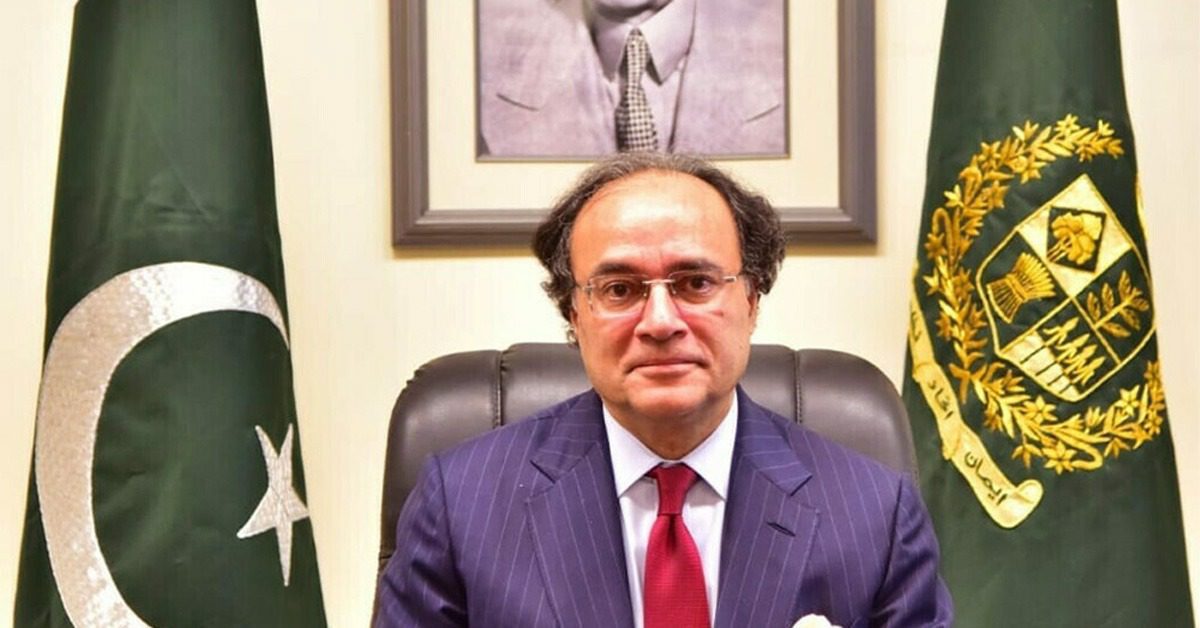Muhammad Aurangzeb, former CEO of the country’s largest commercial bank HBL, officially took over as Pakistan’s Finance Minister after taking the oath of office at the Presidency, according to a Ministry of Finance statement released on Monday.
On his arrival to the ministry, he was greeted by the Secretary of Finance and other senior ministry officials.
The nomination comes amid great speculation in the country about the choice of finance minister, with several names being touted.
Aurangzeb, who was chosen over several veterans previously involved in managing the troubled $350 billion economy, including four-time finance minister Ishaq Dar, will be in charge of the South Asian country’s financial affairs at a time when it is still facing a number of economic challenges such as rising debt, slow growth, and high inflation.
The appointment of a Finance Minister is especially important because the current nine-month Stand-By-Arrangement (SBA) signed with the International Monetary Fund (IMF) last summer is set to expire next month, and analysts believe another programme is in the works – a longer, tougher, and larger facility that will bring Pakistan closer to self-reliance.
Shehbaz Sharif, the newly elected Prime Minister, has already urged authorities to “immediately engage” with the IMF to initiate negotiations for the Extended Fund Facility (EFF).
Earlier, an IMF official told Business Recorder via message that the organization was looking forward to working with the incoming administration.
“We look forward to engaging with the new government to complete the second review under the current Stand-by Arrangement (SBA) and, should the government request, support the formulation of a new medium-term economic programme.”
The IMF also stated that it intends to assist the implementation of robust measures to strengthen financial stability, resolve long-standing economic and underlying balance of payments issues, and restore sustainable and inclusive growth for the benefit of all Pakistanis.
“This includes stronger public finances, through high-quality revenue measures to broaden the tax base while scaling up the support for the most vulnerable, restoring energy sector viability, improving institutional governance and anti-corruption effectiveness, SOE reform, building climate resilience, and creating a level playing field for private businesses to promote investment and job creation.”
An IMF official further stated that the lender “stands ready” to deploy a delegation to Pakistan for the second assessment of the SBA once a new government is constituted.

